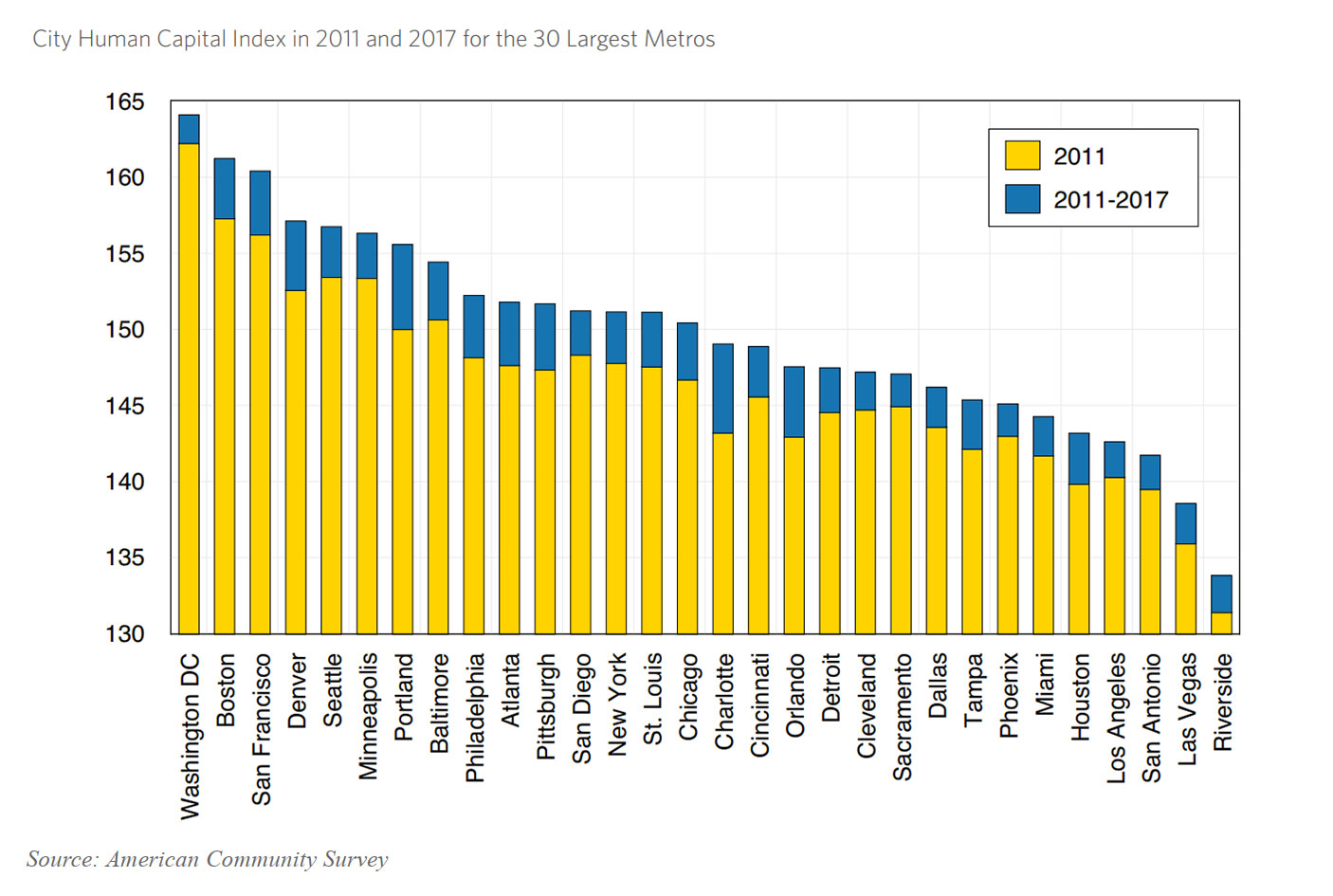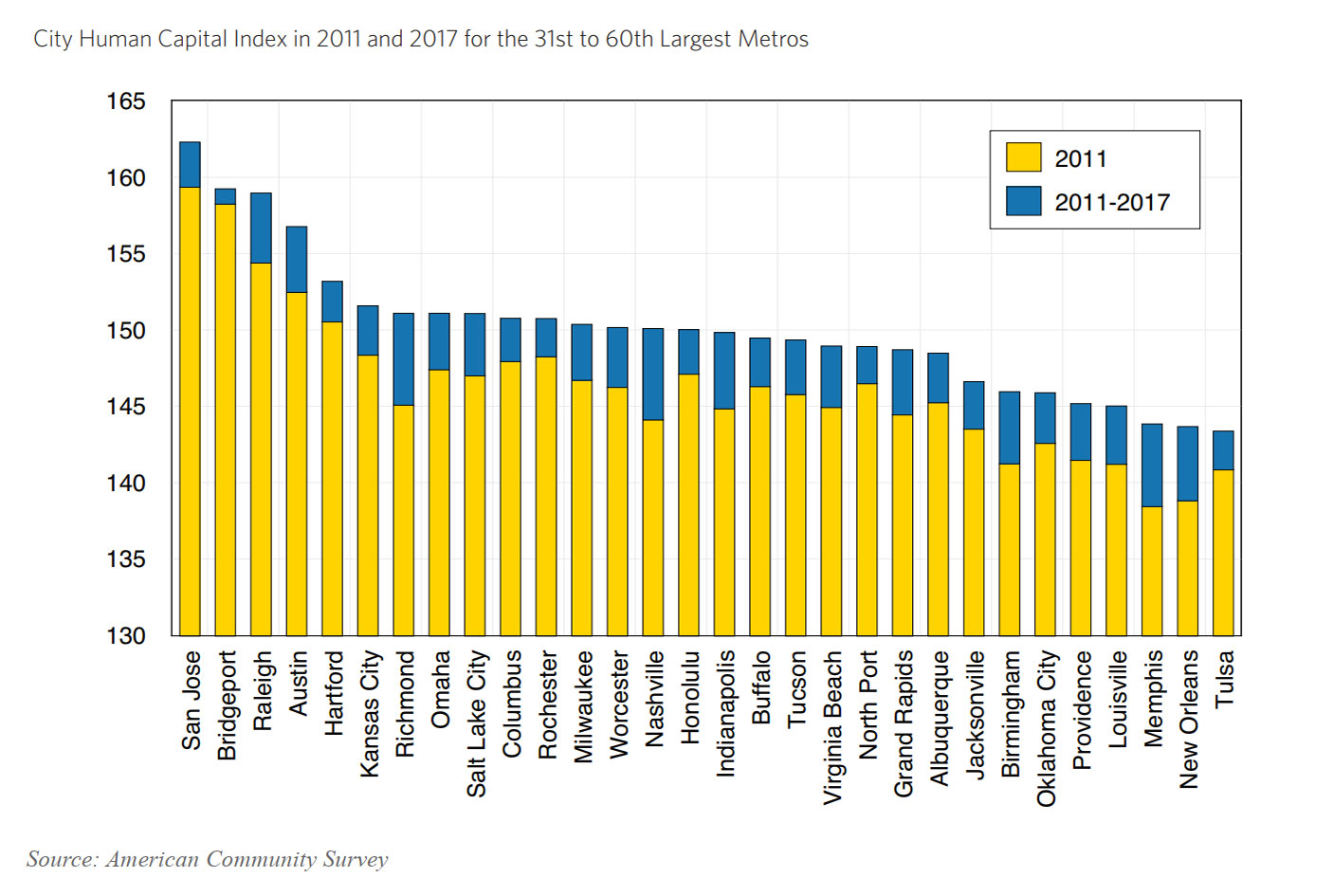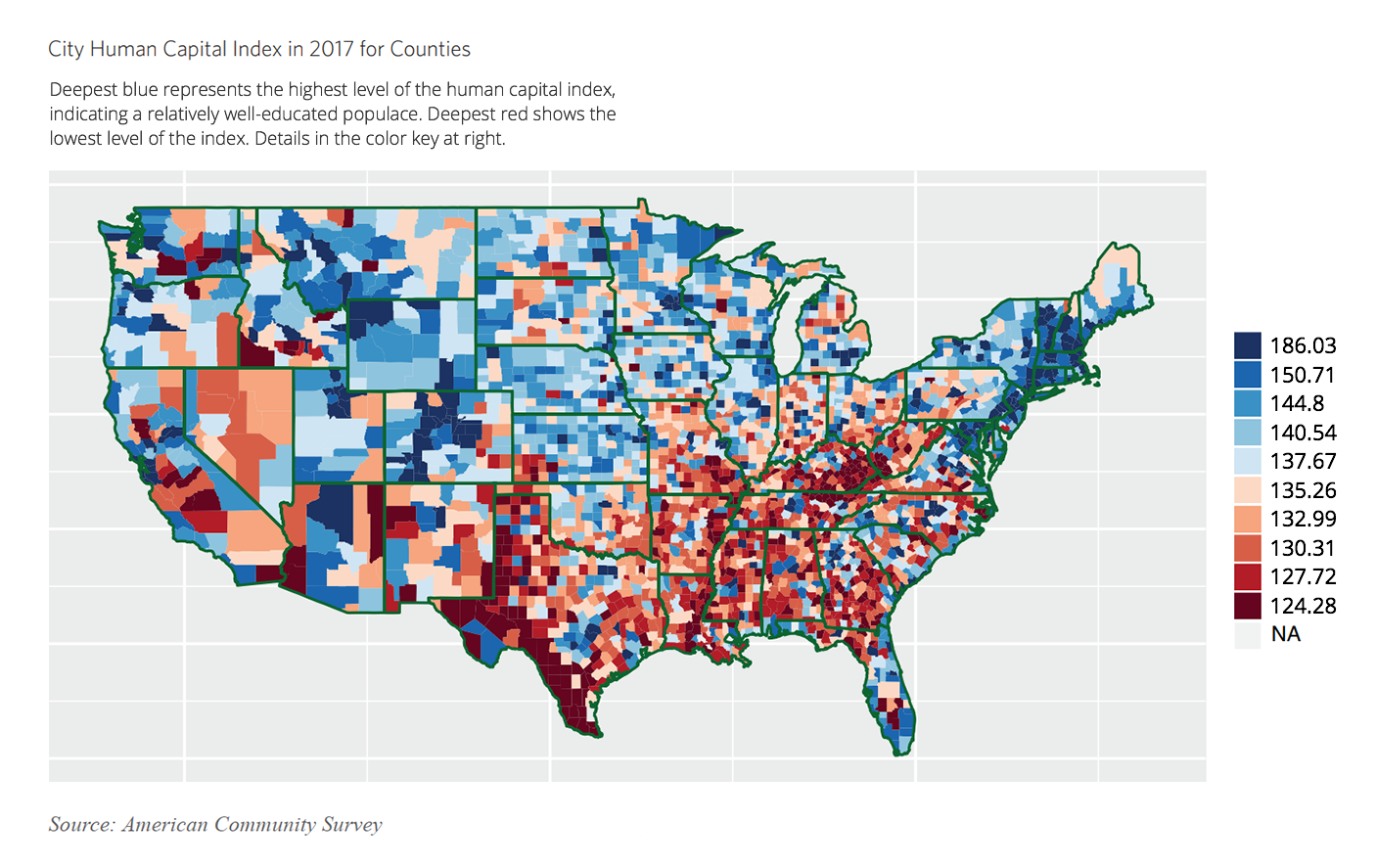Data show growth of educated adults in city populations
Washington, D.C., and Boston have long ranked among America’s most educated cities, with numerous universities and professional jobs creating exceptionally high concentrations of college graduates. San Francisco, San Jose and Seattle also attract large numbers of highly educated adults, in large part because the dominant tech sector there needs them.
Research by UCLA Anderson’s William Yu finds educated adults beginning to cluster in some less obvious places, too. The findings, published in the December edition of the UCLA Anderson Forecast report, offer clues to where wealth could be rapidly advancing.
As of 2017, Denver ranks as the fourth most educated large metro area, just behind Washington, D.C., Boston and San Francisco, according to the findings. After San Jose, among mid-sized metro areas, Bridgeport, Connecticut, Raleigh, North Carolina, Austin, Texas, and Hartford, Connecticut, round out the top five.
Opt In to the Review Monthly Email Update.
Education levels rise when higher educated adults move in or when graduation rates increase at local high schools and universities. Levels rose in most metro areas between 2011 and 2017, but especially rapidly in Charlotte, North Carolina, Portland, Oregon, and Orlando, Florida, according to the findings.
To devise the rankings, Yu updated the City Human Capital Index developed at the Forecast in 2012. The index assigns a numerical value to each resident based on the level of education attained.


Economists consider human capital calculations strong indicators of economic prosperity. Regions where the population’s skills and knowledge are high — places high in human capital — typically have the highest average incomes, GDP growth and business innovation. Lower human capital areas report more need for public assistance, lower consumer spending and lower productivity. Today’s popular places for highly educated people, especially places that attract younger college graduates, are likely to become the nation’s most prosperous economies in the future.
New Mexico, Colorado, North Carolina and Tennessee followed the three West Coast states in marking the biggest gains of well-educated 25-to-34-year-olds. Only Alaska saw a decline in average education levels among its younger adult population, and it was significant.
Yu finds some evidence that smaller towns are continuing to lose educated young people to cities. Large metro areas consistently ranked higher on the index than small towns. The only exceptions were college towns in which the institution was the major employer. Boulder, Colorado, Ann Arbor, Michigan, and Iowa City — homes to very large public universities, where many jobs require advanced degrees — rank among the highest metro areas for human capital.

For California, the study also includes a brief breakdown of human capital concentrations by county and age. The findings suggest that educated adults cluster in San Francisco County as under-35-year-olds but move out to nearby Marin County as age increases. Los Angeles County ranks 10th in the state for highly educated 25-to-34-year-olds, but 20th in 35-to-44-year-olds, according to the findings.
Featured Faculty
-
William Yu
Economist, UCLA Anderson Forecast
About the Research
Yu, W. (2019). City Human Capital Index 2017 update. The UCLA Anderson Forecast for the Nation and California.






